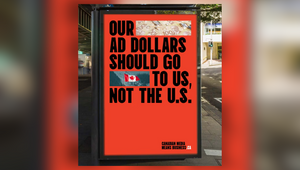
Oasis and the Psychology of Desire

They’re back. And don’t we all know it. After a 15 year hiatus the Gallagher brothers have buried the hatchet, or at least that’s the script, for now. A relationship fracture that started over a tambourine to the head back in 1994, culminated in a split that many thought irreparable.
But money doesn’t flow as freely in this Spotify era, where streams trickle droplets in drought. And Noel’s divorce from the ex he once called ‘God’ is rumoured to require a painful 20 million payout.
On the fateful morning the tickets went on sale, Ticketmaster’s system proved – once again – unfit for purpose, when it faltered carrying out the one job it’s there to facilitate. Measures implemented to clampdown on ‘touts’ – those who buy tickets for the purpose of mega-profit resales – were overzealous, resulting in fans reporting being kicked out of the queue after waiting for hours. Many who did make it to the end fell victim to the rollercoaster of dynamic pricing, which had ticket costs and heart rates battling for the ‘most-risen’ top spot.
But this isn’t just about fans scrambling for a nostalgic trip down Britpop lane – it’s about the psychology of scarcity, the fear of missing out, and how marketing taps into our deepest desires. Scarcity, as behavioural economists tell us, fuels irrational decision-making. The fewer the tickets, the more desperate we become, willing to fork out obscene amounts of cash quicker than you can say “Wonderwall”.
As professor Todd May puts it, scarcity lends urgency to life’s moments. When we perceive something as scarce, it increases the perceived value of that thing. This is a well-documented psychological phenomenon where fear of missing out (FOMO) amplifies emotional reactions, leading people to behave irrationally.
It often triggers a 'panic-buying' response. We only have to think about the resource shortages we experienced during the pandemic to arrive at an intimate understanding of it. When scarcity enters the equation, people prioritise their immediate desires over more rational, long-term considerations.
“I’m paying £361 to stand in my local park,” said the Guardian’s north of England editor, Josh Halliday, recounting his experience in “Ticketmaster hell”, where a dance with panic-buying put him into debt.
Despite knowing it’s pitfalls, consumers frequently fall into the scarcity trap. Sometimes driven not by genuine need, but by the allure of exclusivity. It’s why retailers use limited-time offers, tech companies do gadget launches, and streetwear brands do ‘drops’.
In the wake of this hype, it’s worth examining not just what drives the fervour, but how it reflects broader trends in consumer behaviour and cultural engagement. I spoke to experts to explore how the intersection of scarcity and nostalgia creates a potent mix that fuels collective desire for shared cultural moments.
Emmeline Kite
Head of strategy at Five by Five
The Oasis comeback blends the psychology of desire, scarcity, nostalgia, and intergenerational appeal. It's the kind of phenomenon we at Five by Five love to dissect.
First, scarcity: the 15-year hiatus has created a perfect vacuum of desire. In the attention economy, absence doesn't just make the heart grow fonder – it makes the wallet open wider. This scarcity isn't just about physical tickets; it's about the scarcity of shared cultural moments in an increasingly fragmented media landscape.
Then there's the nostalgia factor. For gen x, this is a chance to relive their youth. For gen z, it's an opportunity to experience a slice of '90s culture they've only heard about. By disappearing for 15 years, Oasis avoided becoming the 'cringe dad's favourite band'. Instead, they've become mythical figures, frozen in time at the height of their cool. Gen z isn't just tolerating their parents' music – they're discovering it with fresh ears.
From a brand perspective, this is gold. It's not just about selling tickets; it's about selling an experience, a moment in cultural history. The £50m payday isn't just for the music – it's for the bragging rights, the Instagram stories, the 'I was there' moments.
At Five by Five, we're always looking for ways to create this kind of desire for our clients. The Oasis comeback reminds us that sometimes, the most powerful move is to step back, create scarcity, and let desire build. It's not just about being ever-present; it's about being present at the right moment, in the right way.
In a world of constant content, perhaps the ultimate luxury is absence. And in that absence, desire grows. Oasis has given us a masterclass in the art of the comeback. Now, who's got a spare ticket?
Samaneh Zamani
Strategy director at Iris
Oasismania is a textbook case of the hype machine done right. Within hours, the band generated and fuelled a level of frenzy and FOMO that is a great reminder of the underlying sense of belonging we psychologically crave as humans. The scale of social currency on
offer, and the opportunity to be part of cultural history was masterfully teased by the band’s marketing and PR. The promise of a reunion no one thought we’d ever see. A once-in-a- lifetime event which might never happen again. A chance to post on your social channels, forever cementing your presence at a rare and monumental event.
That is an intoxicating promise for not only the band’s original fans, but for the generations who follow. For an age group we often tout as being hyper-individualistic, gen z’s underlying desire for belonging rears its head during these mass cultural moments. Further fuelled by a week of dopamine blasts: speculation, teaser post, announcement, presale codes, five-hour virtual queues on Ticketmaster – Oasis created the perfect conditions for frenzy and hysteria, which has no doubt left many ticket buyers in a whirlwind haze foreshadowing how many fans will feel following the tour itself, I’m sure.
Tara Ellis
Senior strategist at Wonderhood Studios
When it comes to Oasis and the scarcity of tickets, I don’t think it’s about there being fewer tickets, but rather about each ticket meaning more.
Sure, it’s tear-inducing, reminds-me-of-when-I-was-young for many, but for others? Getting Oasis tickets is more about saying, “I got Oasis tickets,” and “I got to go to Oasis,” than it is about actually being there.
Okay, most of you will never admit it, but think about it: Do you know more than five Oasis songs? And no, 'Wonderwall' doesn’t count.
But hear me out - this rationale for wanting to go to Oasis is totally okay. In fact, I encourage it!
Recently, I went to see Taylor Swift. I didn’t sign up early to get tickets, and I didn’t even know I wanted to go until I saw everyone – and their mom (literally) – attending. Social media posts and stories created a FOMO within me, where I knew I needed to go. Not necessarily because I wanted to, but because I needed to join the hype of going and of having been to the Eras tour.
The outcome? It was one of the best nights of my life – an experience I never knew I needed until FOMO kicked in. So, what am I trying to say? Thank f*** for FOMO. Whether you’re gen z or gen y, an Oasis fan or not, if you just want to be part of a moment in history, join that queue. You may be waiting for a few hours, but odds are, it’ll be totally worth it.
Lauren Castagni Mote
Founder of Sage7
Manufactured desire around cultural events and moments is definitely a thing. Whether it’s driven by FOMO or a deeper psychological need for belonging or approval, there’s a caché tied to being there (and talking about being there), whether you’re a super fan or not. This kind of manufactured desire used to be seen more irregularly, like the peak Coachella and Glastonbury hype throughout the 2010s, but it seems to be increasing in frequency because of social media making trends emerge at the speed of now – and everyone from brands to advertisers to politicians then jumping on them.
I think Oasismania has absolutely been driven by scarcity, and amplified by the constant ‘will-they-won’t-they’ teasing from the Gallaghers over the years. For gen x there’s an intrinsic motivation to relive their youth, but from a gen z perspective it’s more extrinsic, influenced by social pressures and tied to their love for '90s culture. It’s not just the aesthetic, but the attitude Oasis represents. Both generations feel a sense of nostalgia for ‘better times’, despite only one of them really living through it. Combine this with the lore around the band, from the drama to the bad behaviour, and you can see why there’s a desire to bear witness to how it plays out. The same thing happened when the big five Fleetwood Mac line-up reunited; boomers were buzzing to see their favourite band back together again, and millennials went wild for the old stories and dynamics that got dredged up, alongside rediscovering the music.
James Kirkham
Founder of ICONIC
Oasis aren’t normal; the cliché is that they’re a dad-rock band of yesteryear, re-igniting the fires of a middle-aged crowd who’re trying to remember how good the nineties was.
But this isn’t quite the case, there is more nuance. Two years ago when I saw Liam Gallagher at Knebworth I took the time to talk to countless 17-21 year olds, marauding in big groups of peers and friends all there in their merchandise looking like they’d stepped out the '90s. They all discovered Oasis through their parents' record collections (or probably Spotify playlists), with songs being played in their early childhood which became core memories, and which then sent them on a journey of their own.
Just as I learned about The Beatles by my dad playing John Lennon when I was super young in the early '80s, then as a teenager finding 'Revolver' and 'Sgt. Pepper’s' and embarking on my own little musical journey. These young audiences accounted for millions of gig goers on the Definitely Maybe tour which Liam recently played – despite it being a deliberate celebration of a 30 year old rock record. This tour which just recently finished has now felt like the ultimate tease campaign, with Liam Gallagher playing the entire Definitely Maybe album in all its glory, whetting the appetite of millions around the UK for what’s to come next year.
But there was more to Oasis than the music, it was the fashion, an attitude, and a feeling. And young people have now responded as many of us did then in the early '90s.
Liam walked out at a gig in Maine Road in 1994 and made an Umbro drill top look like Gucci, single handedly kicking off a football x fashion crossover. It was a working class street culture aesthetic which spanned adidas Gazelles, tracksuit tops, Kappa jackets, Stone Island, Burberry, adidas Superstars with cargo shorts in the summer, and countless other pillars of modern street fashion culture.
The late '90s with Noel wearing a cagoule and Sambas saw a 16 year old wearing the same as a 40 year old – and this sort of homogenised fashion has not changed since. It is no longer tribal but then it was new, now young people tap into the feeling, the aesthetic, the fashion of that time as it is just as relevant to this time.
From the music to the fashion, even to the hope offered by another Labour government not seen since 1997, there’s an indelible link between then and now, a red thread which connects young and old, across three decades.















